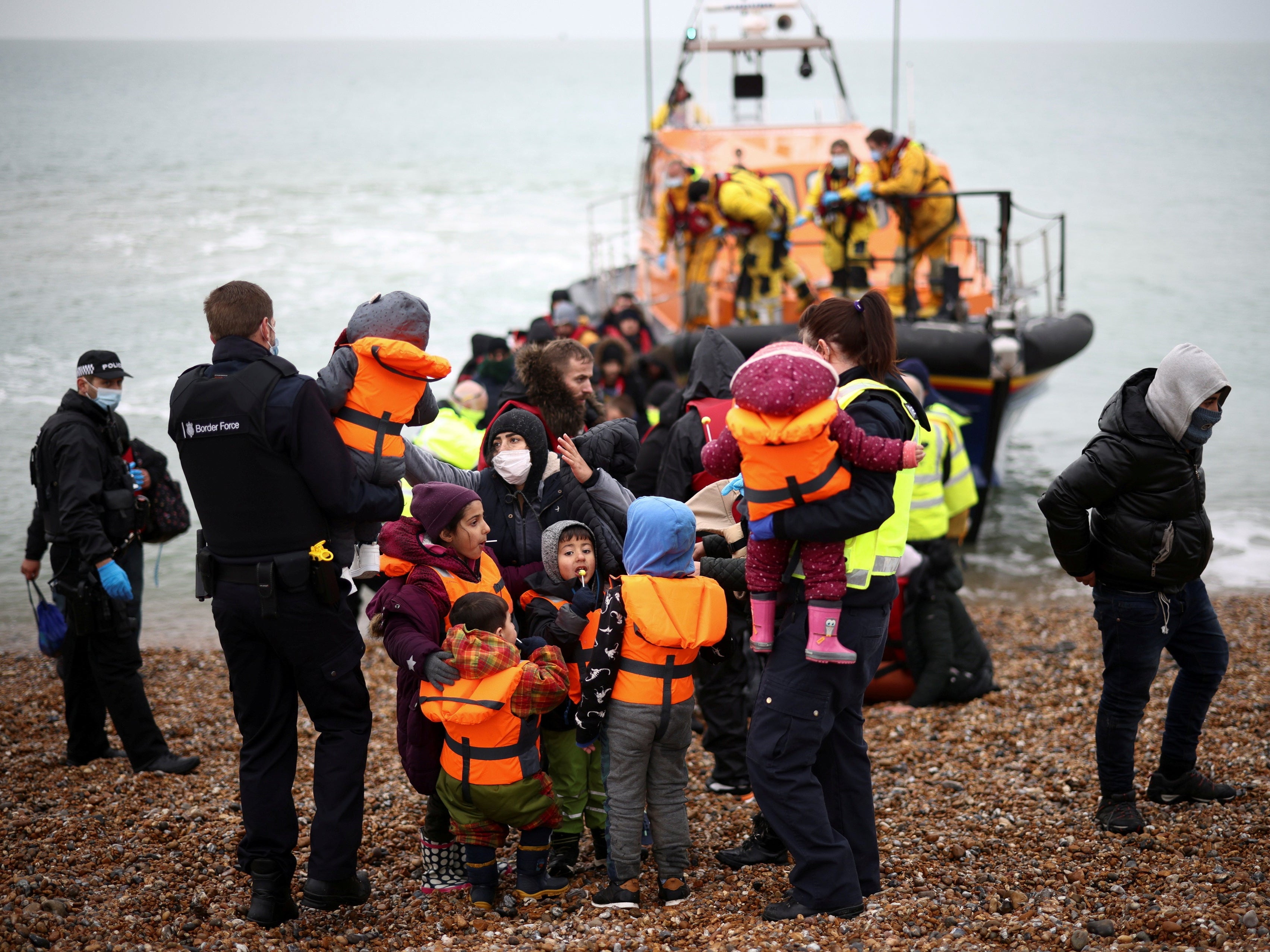Priti Patel bows to pressure to protect RNLI from being prosecuted for saving migrants’ lives
Home secretary adds exception to law that would make ‘facilitating the entry of asylum seekers’ a crime
Your support helps us to tell the story
From reproductive rights to climate change to Big Tech, The Independent is on the ground when the story is developing. Whether it's investigating the financials of Elon Musk's pro-Trump PAC or producing our latest documentary, 'The A Word', which shines a light on the American women fighting for reproductive rights, we know how important it is to parse out the facts from the messaging.
At such a critical moment in US history, we need reporters on the ground. Your donation allows us to keep sending journalists to speak to both sides of the story.
The Independent is trusted by Americans across the entire political spectrum. And unlike many other quality news outlets, we choose not to lock Americans out of our reporting and analysis with paywalls. We believe quality journalism should be available to everyone, paid for by those who can afford it.
Your support makes all the difference.Priti Patel has bowed to pressure to protect the RNLI and other charities from being prosecuted for rescuing asylum seekers in the English Channel.
A controversial suite of new laws would make it a criminal offence to “facilitate the entry of asylum seekers” by taking them ashore, even if not done for payment or any sort of criminal gain.
The home secretary has now tabled an amendment to the Nationality and Borders Bill creating a specific legal exemption for rescuers.
The clause says that someone cannot be prosecuted for “an act done by or on behalf of, or co-ordinated by HM Coastguard”, and that it would be a defence to show the people brought ashore had been in danger or distress at sea.
The government said it would mean that facilitating the entry of asylum seekers after rescues at sea, or bringing stowaways to the UK, will not be a crime.
It is one of 80 amendments proposed in the home secretary’s name, which will be voted on by MPs when the bill reaches its report stage in the House of Commons.
A date has not yet been fixed for the vote, which will also consider numerous changes backed by opposition MPs.
Ministers previously insisted there was no intention to criminalise rescue operations by the RNLI, which has been targeted by far-right groups over operations involving migrant boats, amid uproar over the proposals earlier this year.
Last month, a group of fishermen allegedly tried to block an RNLI lifeboat from travelling to rescue asylum seekers, days before at least 27 people drowned in the Channel.
A spokesperson for RNLI confirmed the incident had been reported to the police, and that the lifeboat was eventually able to launch.
A parliamentary report released on Wednesday said the government’s operations in the Channel currently “rely heavily on voluntary organisations, such as the RNLI, or independent lifeboats”, who are tasked by the police and HM Coastguard.
The Joint Committee on Human Rights said criminalising them would breach human rights laws, adding: “On the face of the bill [before amendments] there is plainly a risk that the changes made to the offences of facilitating illegal entry and facilitating the arrival of asylum seekers in the UK would criminalise life-saving activities.”

The report said several parts of the Nationality and Borders Bill were unlawful, as well as plans to push migrant boats back into French waters, and called for significant changes.
A previous exemption only covered actions by organisations that “aim to assist asylum seekers”, rather than broader search and rescue groups.
The exemption being added to the bill does not cover rescue operations if the UK “was not the nearest place of safety” and there was not “good reason” for taking migrants there.
Nor will people be able to use the exemption for steering a boat that they were travelling on themselves.
The bill would make it easier to prosecute asylum seekers for steering their own dinghies across the Channel, and raise the maximum sentence for the offence to life imprisonment.
Boris Johnson on Wednesday vowed to continue with the push back plan, despite the recent drownings.




Join our commenting forum
Join thought-provoking conversations, follow other Independent readers and see their replies
Comments